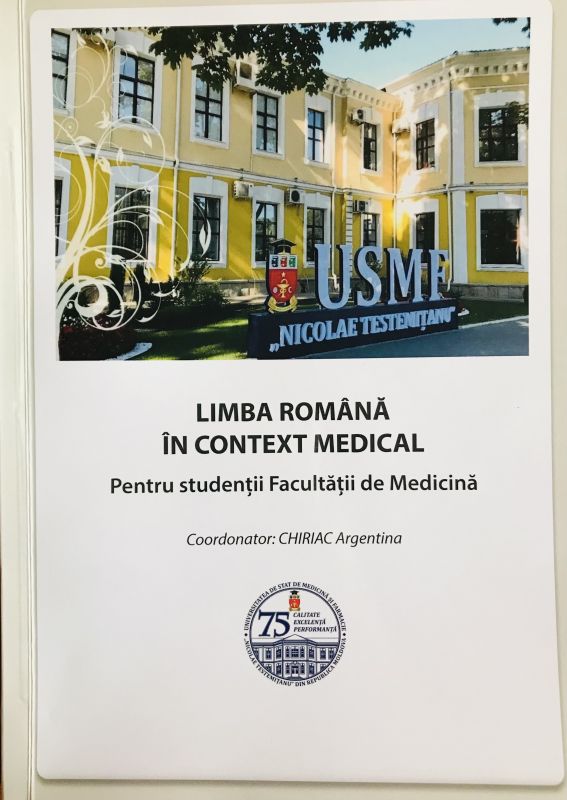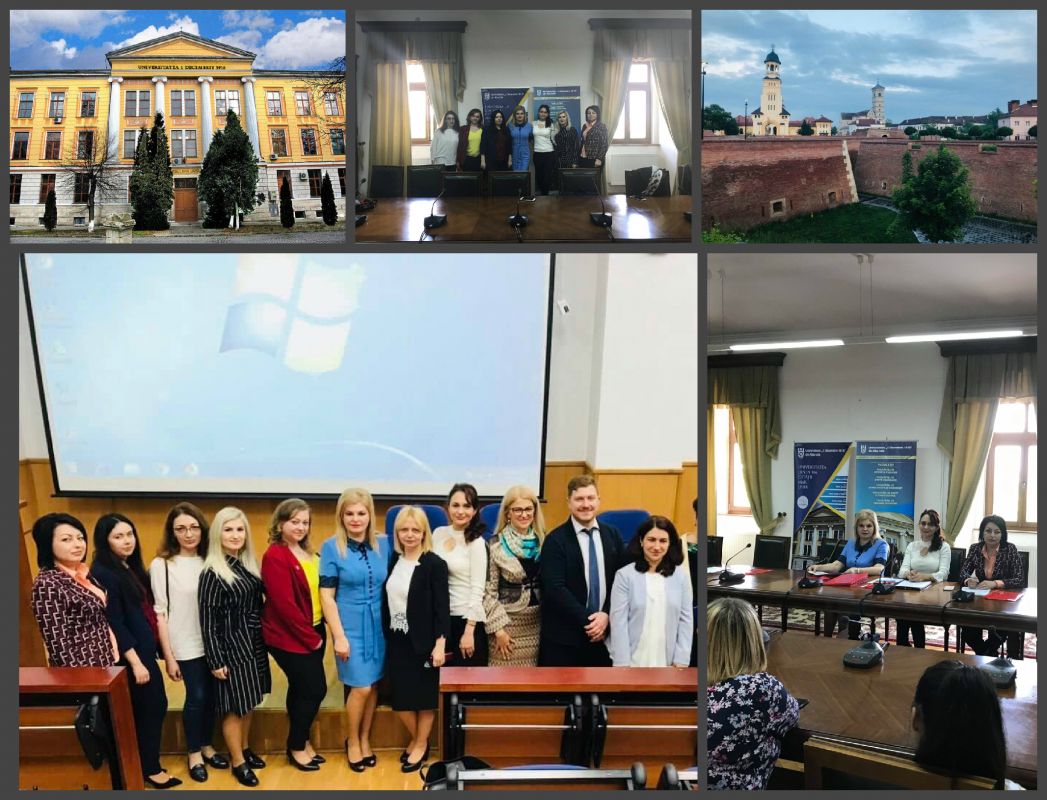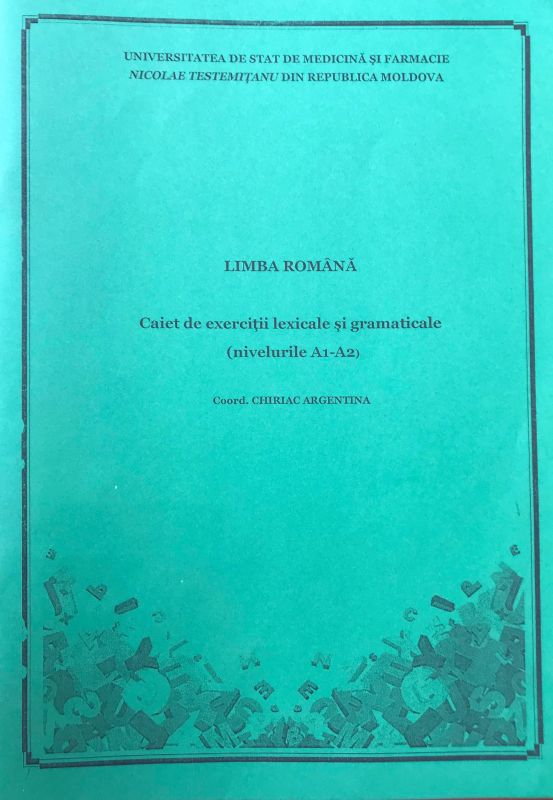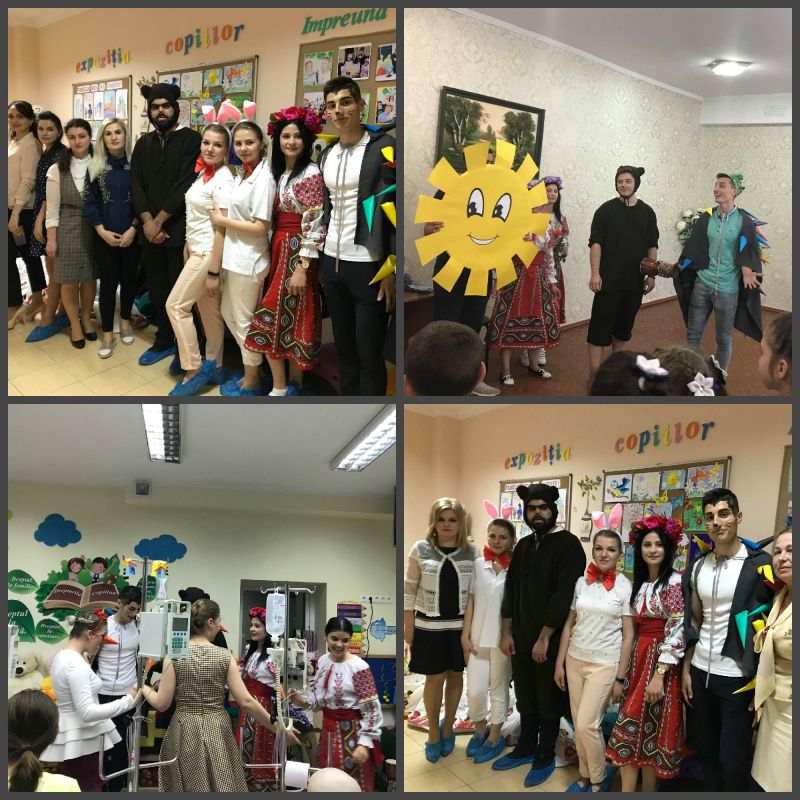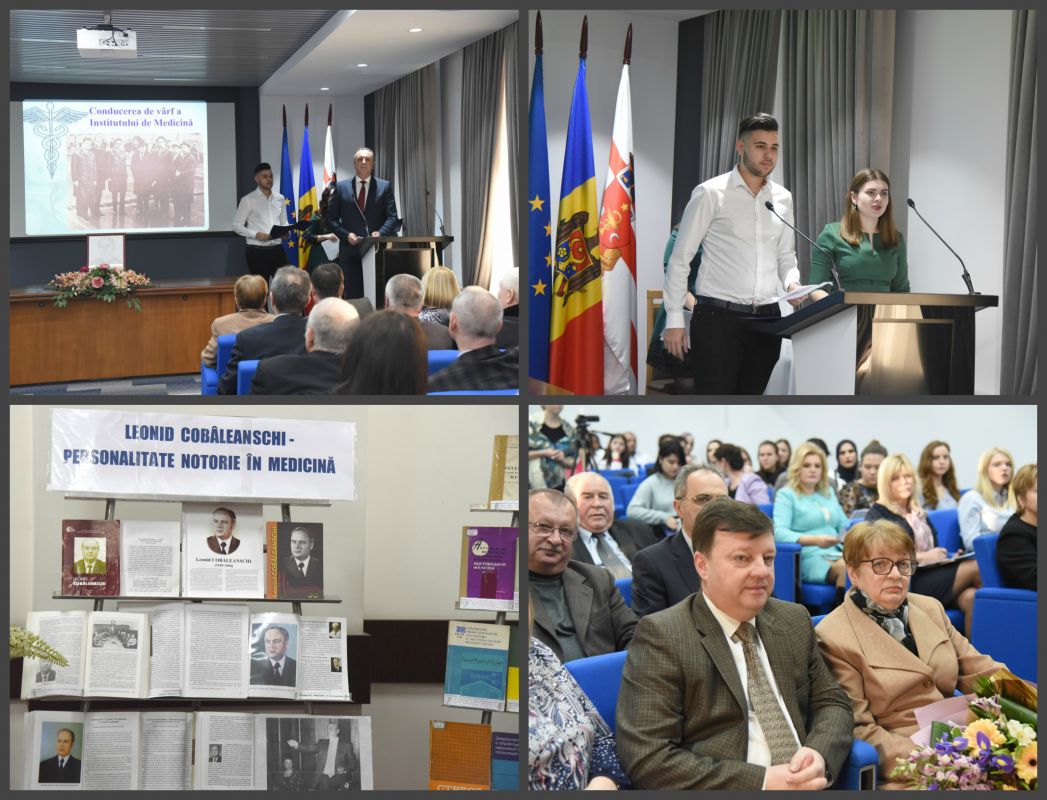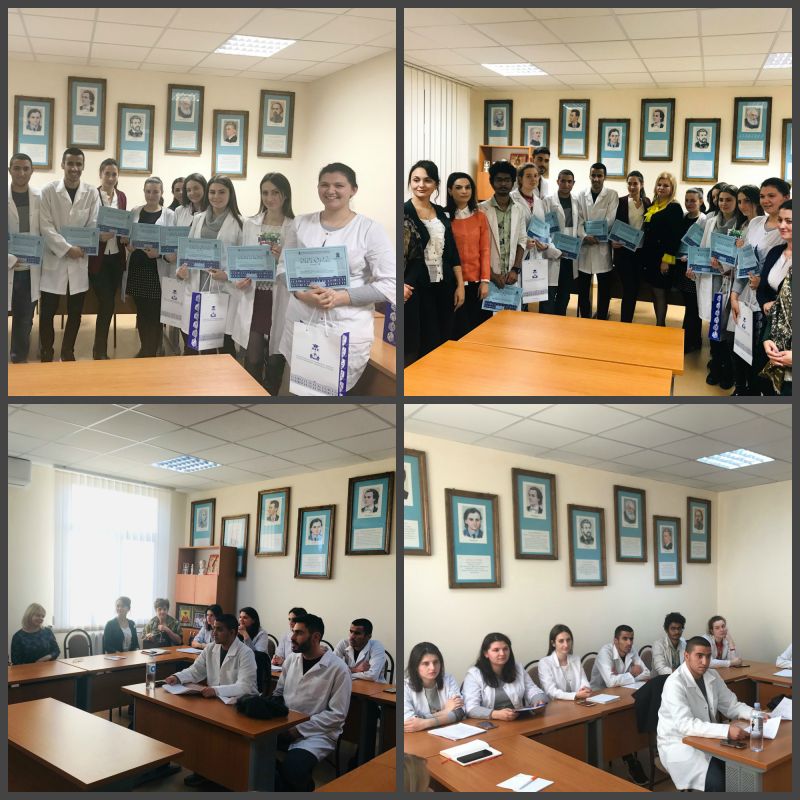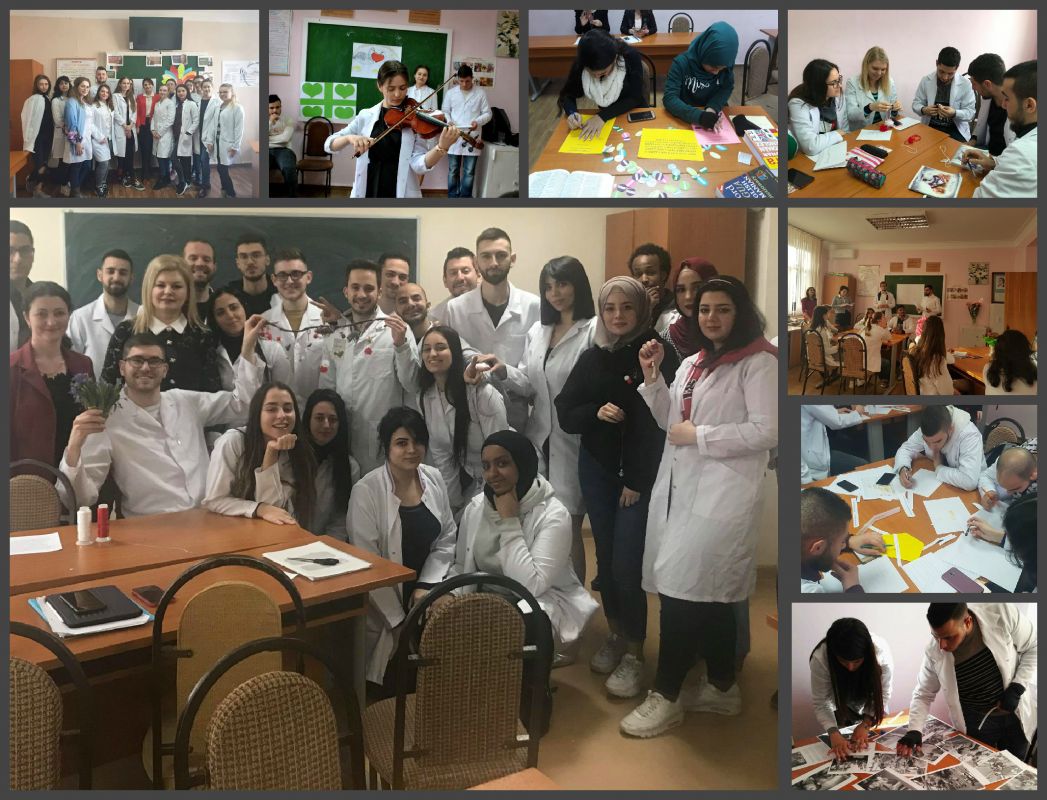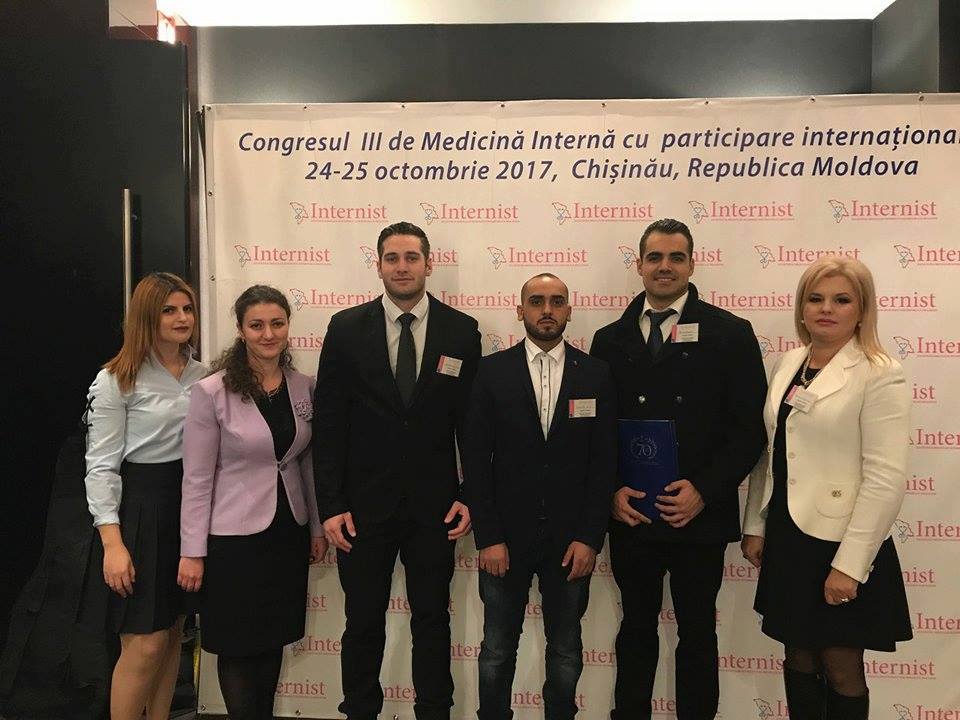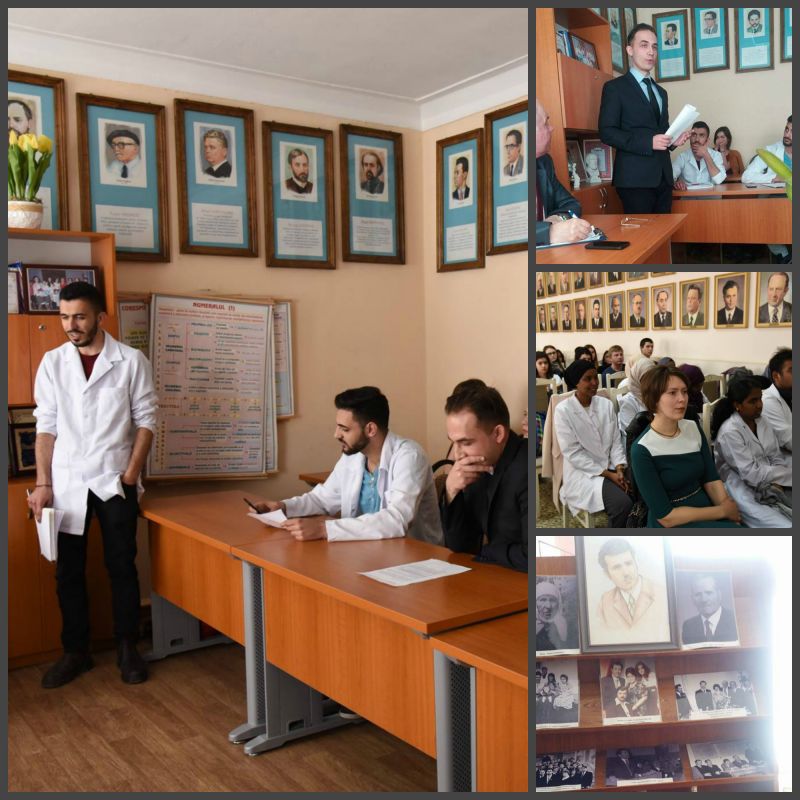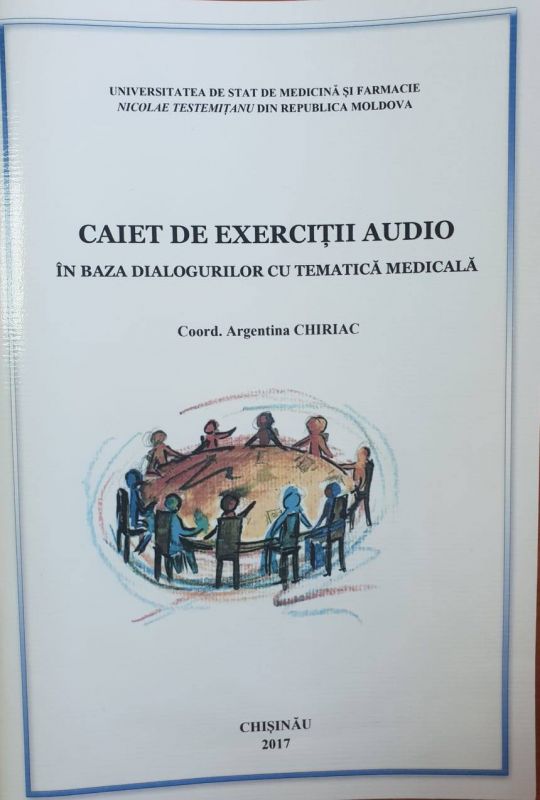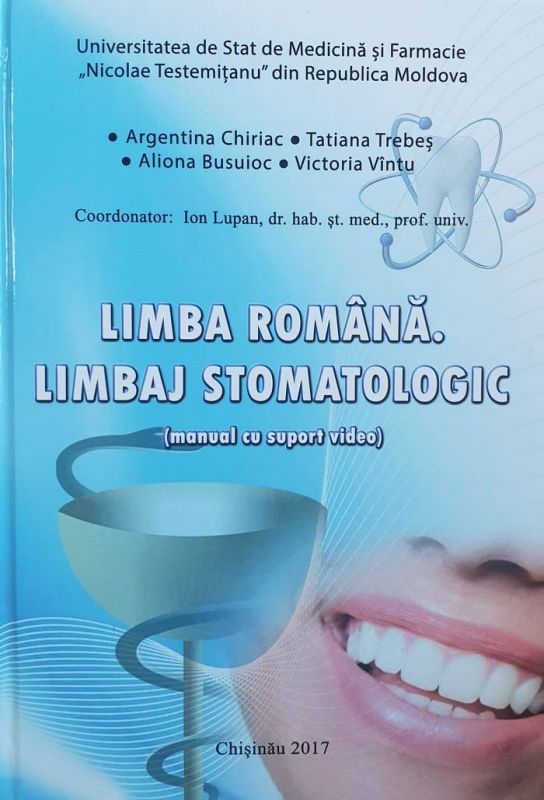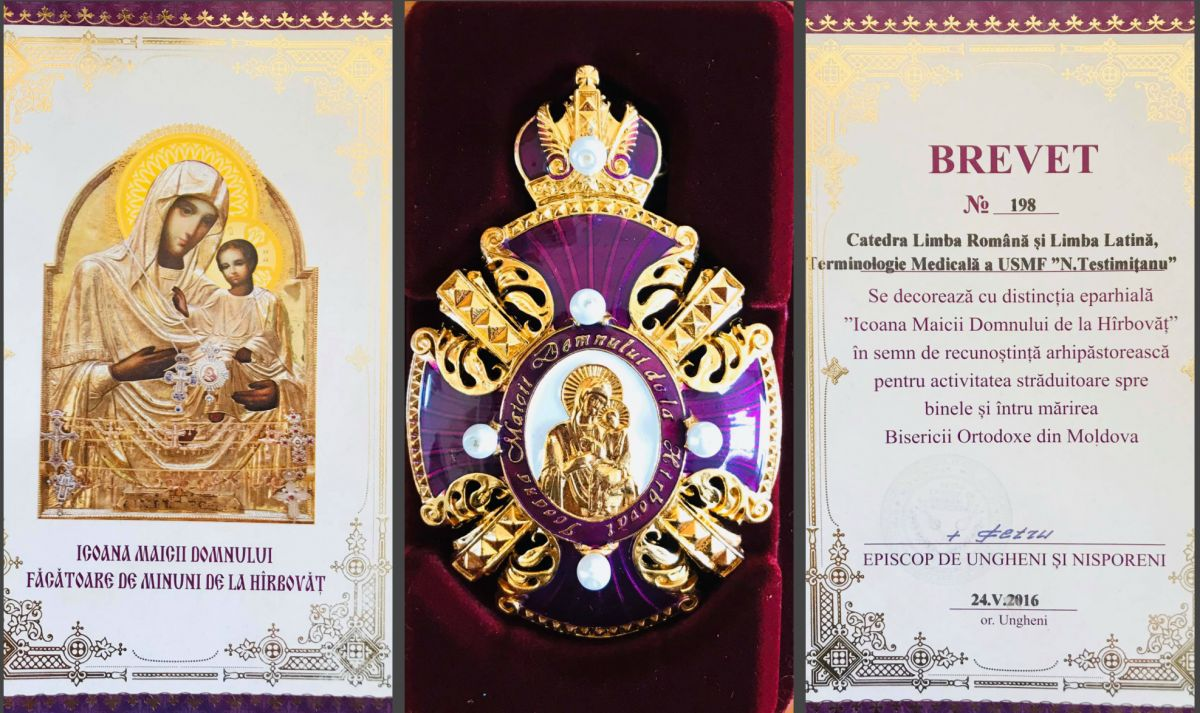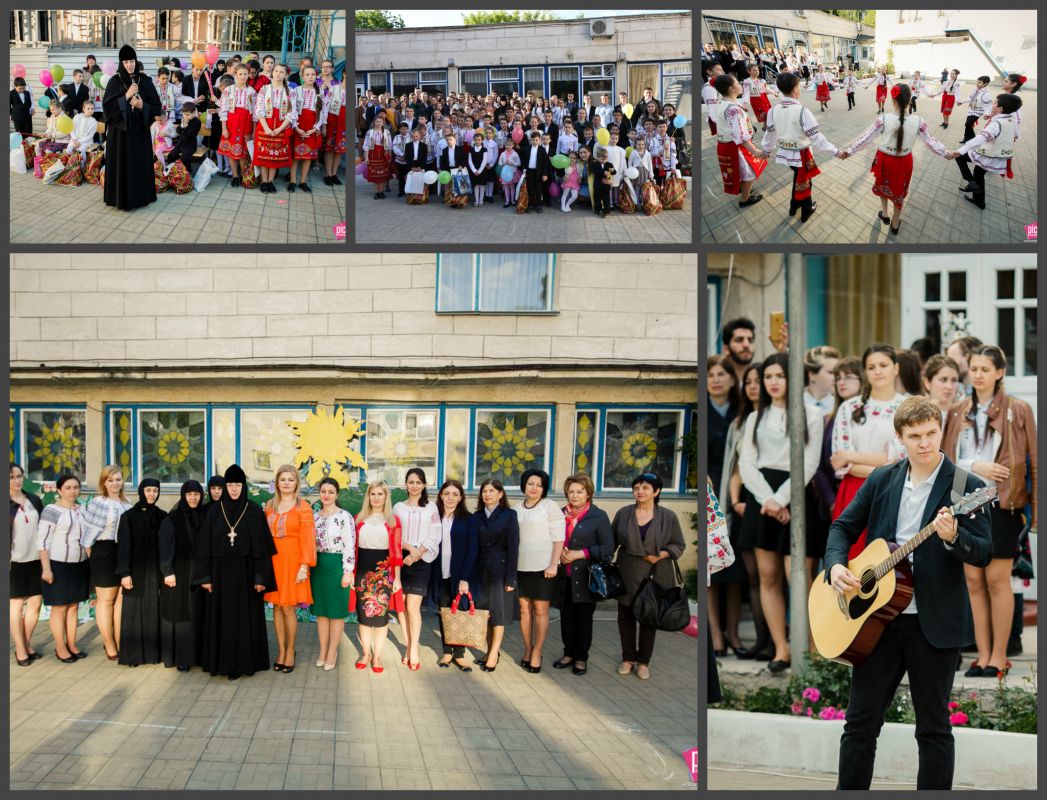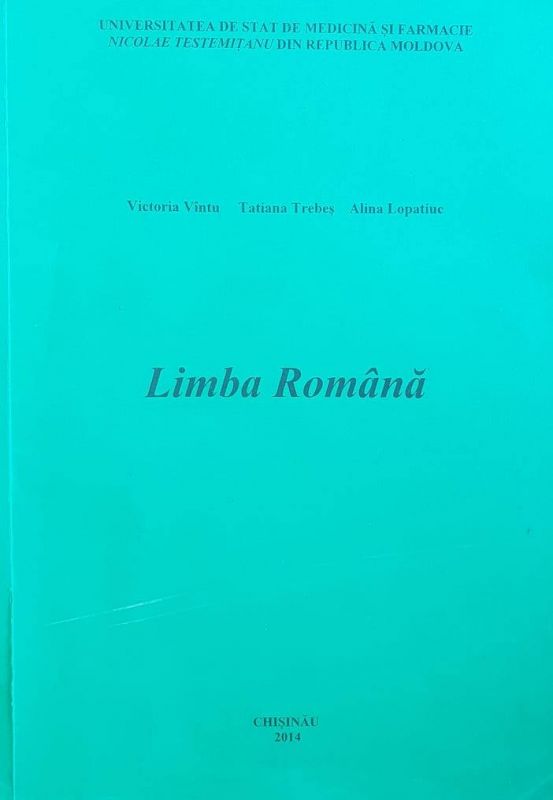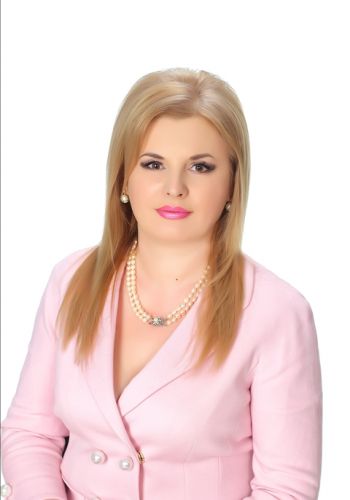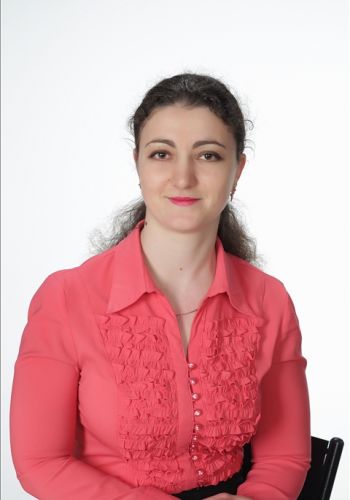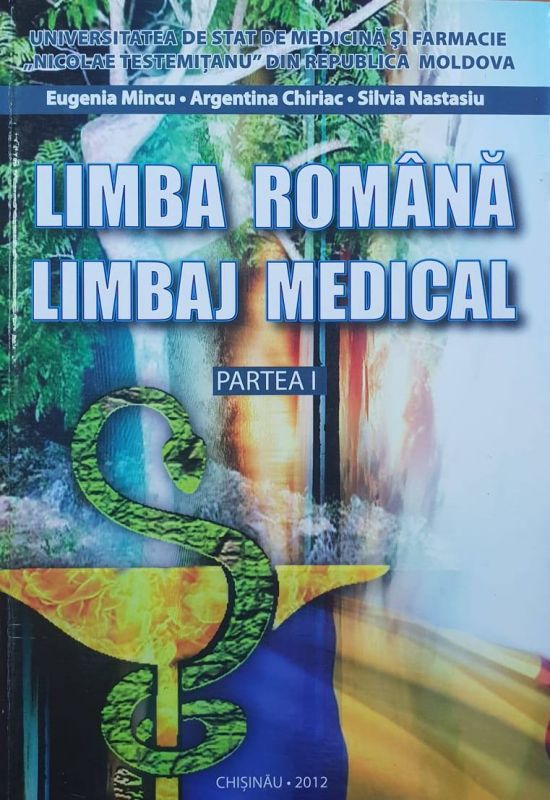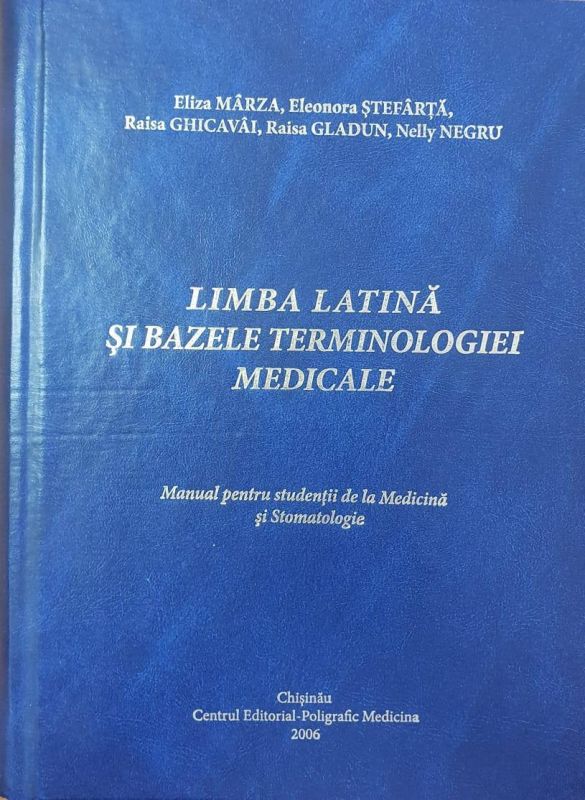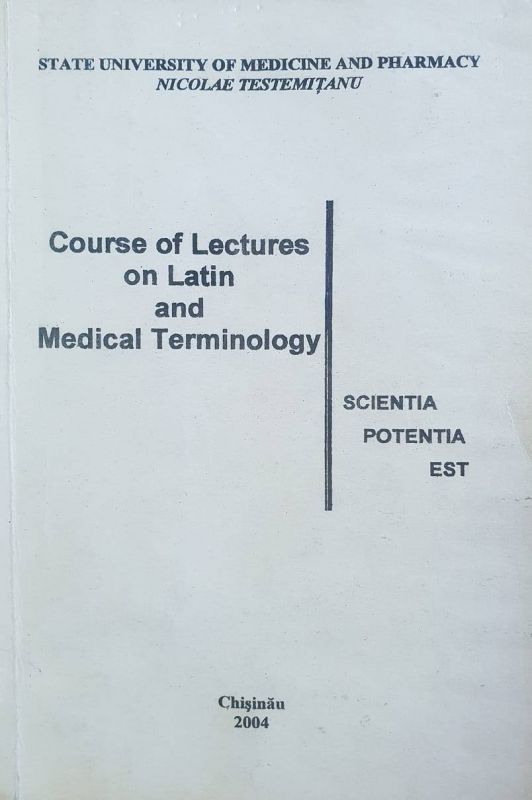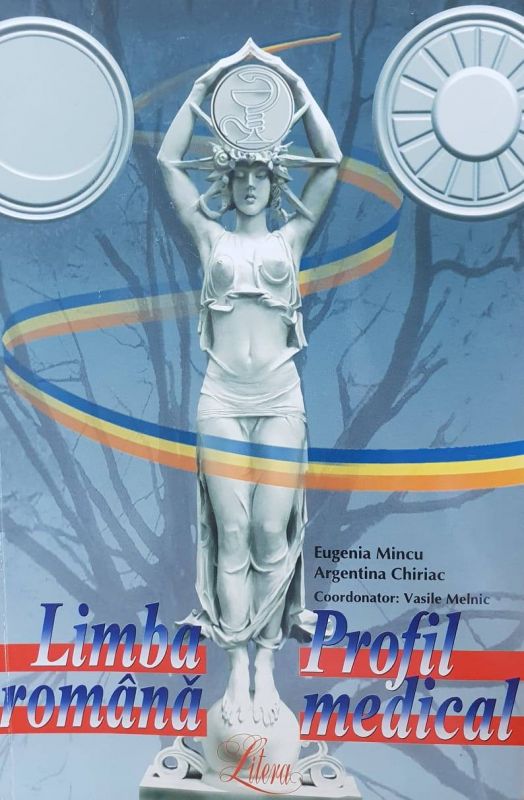
A brief history
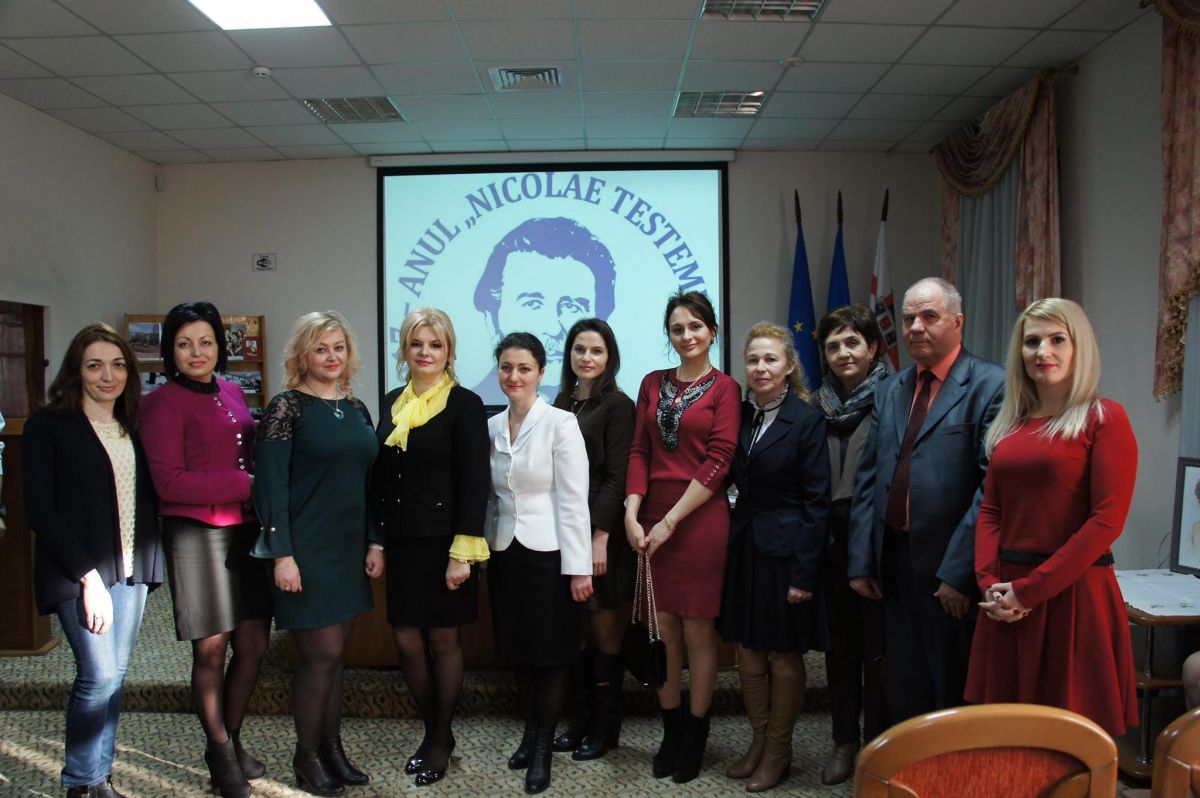 The Department of Romanian Language and Medical Terminology offers two courses: Romanian language and Latin language.
The Department of Romanian Language and Medical Terminology offers two courses: Romanian language and Latin language.
The Department aims at training the students from the Faculties of Medicine 1, Medicine 2, Dentistry and Pharmacy, who need to learn the Romanian language to B1-B2, C1-C2 levels, according to the scale and descriptors provided by the Common European Framework of Reference for Languages, and at their initiation into Latin medical terminology, with a view to their socio-professional integration, through the cultivation and development of oral and written communication skills, in specific contexts.
Argentina Chiriac, PhD in pedagogy, associate professor is the head of the Department of Romanian Language and Medical Terminology, and Tatiana Trebeş, PhD in philology, is the head of studies. Currently, the discipline has 11 professors (of which 2 are associate professors (Argentina Chiriac, PhD in pedagogy, Spânu Stela, PhD in philology) and 9 assistant professors, of whom one is PhD in philology and 4 are PhD students).
Department’s members are the authors of over 130 scientific and didactic-methodical works (of which 2 monographs, 6 textbooks, 2 exercise books and 120 scientific articles).
Annually, members of the Department of Romanian Language and Medical Terminology participate in refresher training courses and workshops, at both national and international level, adapted to the requirements of the strategic documents on language teaching, in order to enrich their specialized knowledge, to exchange ideas, experiences, and good practices, to find support for solving common problems.
In 2019, the Department of Romanian Language and Medical Terminology (currently, Romanian Language Discipline) organized the international conference Didactics - Tradition, Present Time, Prospects for the Future (5th edition), in partnership with professors and researchers from December 1, 1918 University, Alba Iulia, Technical University of Cluj-Napoca, Romania, Holy Cross University of Kielce, Poland, Penza State University, Russian Federation, which took place in the city of Alba Iulia, Romania. [http://www.didactica-alba.org/ro/].
Between 2013-2017, the Department of Romanian Language and Medical Terminology was an associate partner of two international projects, carried out in collaboration with Gr. T. Popa University of Medicine and Pharmacy, Iasi Romania:
1. Take Care Project (Health care Language Guide for Migrants) - the aim of the project was to develop a medical language guide for medical students and migrants, with relevance for doctor-patient communication.
2. Palliative care MOOC (Multimedia applications for medical and health care education and e-learning) - the aim of the project was to create an educational platform for doctor-patient communication in the field of palliative care.
Starting from 2015, the Department of Romanian Language and Medical Terminology is a member of QUEST Romania Association (Romanian Association for Quality Language Services), whose language objectives are the following: teaching modern languages and Romanian as a foreign language at undergraduate level and alignment strategies with European language policy, which are reflected in the teaching, testing, research and refresher training of foreign language teachers [www.quest.ro].
The Department of Romanian Language and Medical Terminology has:
"The Art of The Word – Medicine for Soul" language circle, which organizes meetings with different interactive activities in order to develop mobility and communication skills, to promote cultural and linguistic diversity and to encourage foreign students to learn Romanian, to be able to interact with the target language speakers.[https://www.facebook.com/catedradelimbaromanansiterminologiemedicala/?ref=aymt_homepage_panel&eid=ARA24oi2F1jM_Bm7SaQU9vws1egreKdo6SAp8AtBMjv6EYwAmyyvr3PiB4-FBa1BHGBZ8ycO1LaU4Fht]
Two student circles: “Asklepios” (Romanian language) and “Olympus” (Latin language), which hold joint meetings (for local and foreign students), addressing various topics useful for future specialists. Students study different aspects of medical terminology, analyze, synthesize linguistic-terminological facts, and later present them at various university conferences, in the form of papers and posters.

